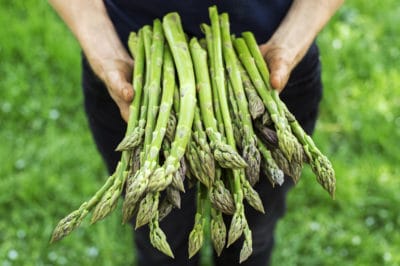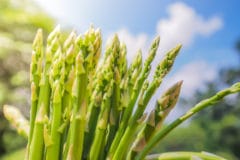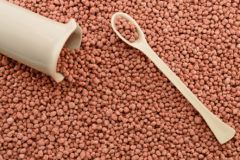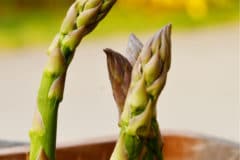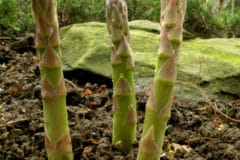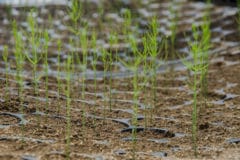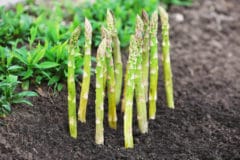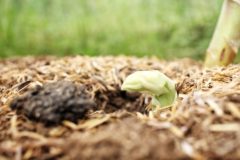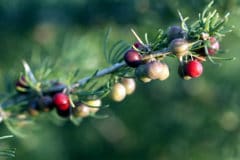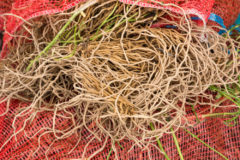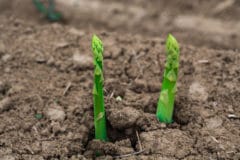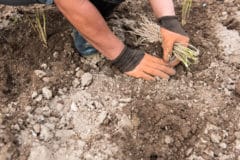Amending the Soil for Organic Asparagus
If you want to grow asparagus organically, start by fortifying the asparagus bed with organic soil amendments. Prepare the planting area well in advance of ordering your asparagus crowns, so the site is ready when they arrive.
Asparagus grows best when it is planted in deep, well-drained soil filled with the essential plant nutrients and trace minerals. The best way of achieving this is by digging-in a 2 inch (5cm) layer of organic compost into the planting bed before you plant your asparagus crowns. You can make the compost yourself, or you can buy it from a nursery.
Another way of organically improving the soil in advance is to grow a soil-building cover crop. The fall before you plant your asparagus, plant the site with nitrogen-fixing bell-beans, vetch, or peas mixed with oats or another grass. The grass will act as a scaffold for the legumes and will provide organic matter, and the legumes themselves will add nitrogen and other nutrients to the soil. When the cover crop begins to flower, cut it down and mix it into the soil.
Asparagus plants especially like phosphorus. You can add phosphorous to the planting area just before you set out the crowns by mixing bone meal or rock phosphate into the soil at the bottom of the planting trench.
Organic Fertilizers for Growing Asparagus
Organic fertilizers are minimally processed, naturally occurring compounds which provide plants with nitrogen, phosphorus, potassium, and trace minerals. Some readily available organic fertilizers are:
- Blood meal (nitrogen)
- Bone meal (phosphorus)
- Rock phosphate (phosphorus)
- Granite dust (potassium, calcium, and magnesium)
- Kelp meal (trace minerals like zinc)
Whatever fertilizer you use, be sure to read the package and apply it as directed.
Fertilize your asparagus bed by side-dressing the plants in the early spring in the first year of growth. Once the plants are established and begin producing shoots, apply the fertilizer after harvest.
At the end of the season, mulch the bed with compost, decomposed manure, or leaf mulch to add organic matter and keep weeds down. Cut back the ferns at the end of the growing season and compost them.
Companion Plants for Pest Control
Use companion plants to reduce pest problems. Good companions for asparagus include tomatoes, parsley, and basil. Tomatoes have a substance in their roots which can combat soil-borne pests which sometimes attack asparagus. However, plant tomatoes just outside the asparagus growing area so they do not interfere with the large growing root mass of the asparagus plants.
